Syd Barrett: Cambridge honours its 'Crazy Diamond'
- Published
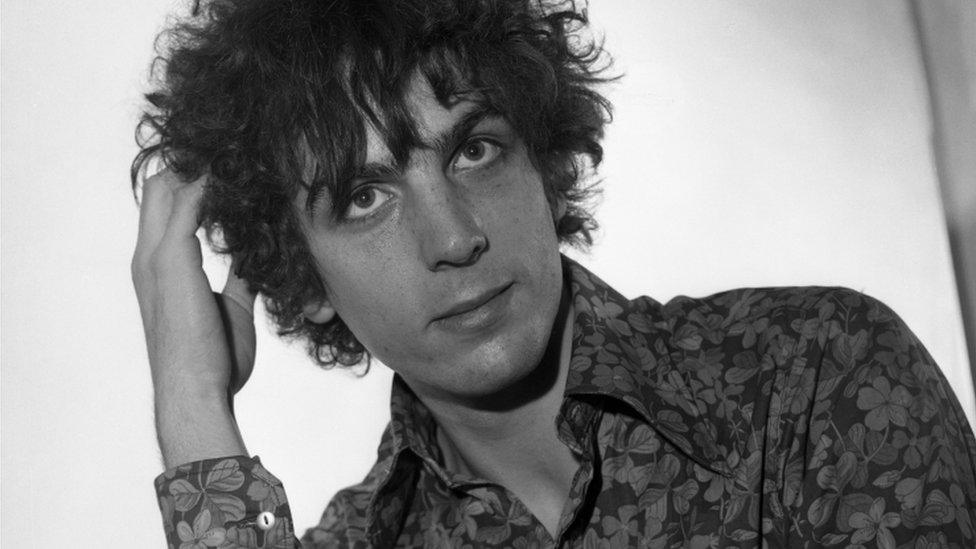
Syd Barrett was one of the founding members of Pink Floyd and played with the group until 1968
An artwork commemorating Pink Floyd legend Syd Barrett is being unveiled in his home city of Cambridge following years of campaigning by fans for a permanent memorial. Why has it taken so long for the city to fully honour its "Crazy Diamond"?
"He wasn't in any way a pop star - he never understood celebrity."
Rosemary Breen prefers to think of her late brother as Roger, a man who lived a quiet life in Cambridge and who was at his happiest when painting.
But Roger, who died in 2006, had spent much of the early part of his life as someone else entirely: Syd Barrett.

You might also like

Adored by fans across the globe, he was the principal songwriter and driving creative force in the early days of Pink Floyd, the band he was a founding member of and in which he sang and played guitar.
But just when the band's career was taking off, Barrett's drug use and mental health issues resulted in increasingly erratic behaviour. It led to his departure from the band and his eventual return to Cambridge as a semi-recluse.
Syd Barrett: Cambridge honours its 'Crazy Diamond'
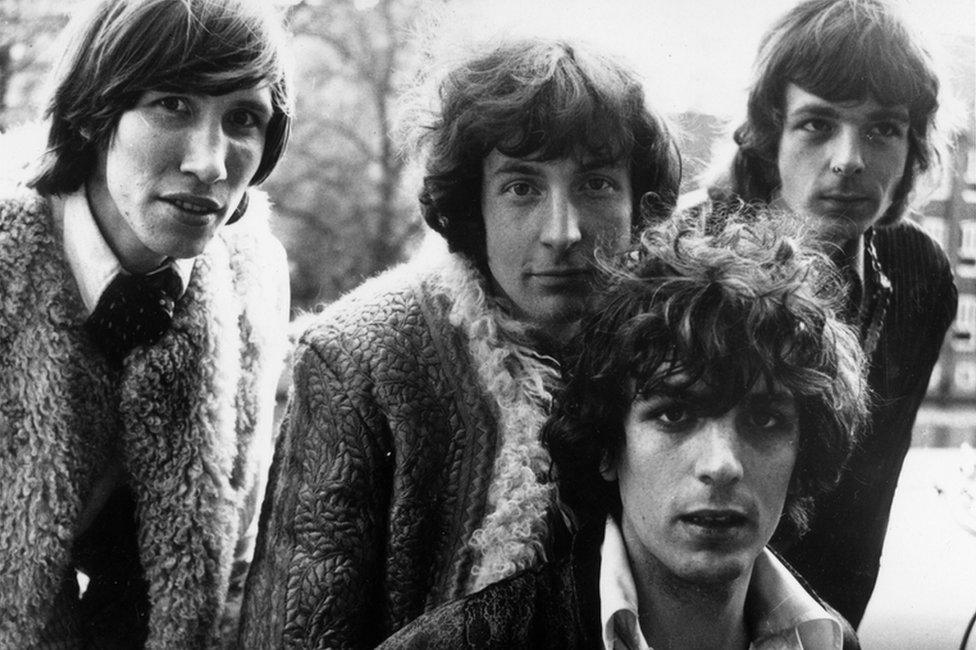
Pink Floyd (from left to right: Roger Waters, Nick Mason, Syd Barrett and Richard Wright) pictured in 1967
Following his death from cancer in 2006, there were calls for the city where he had spent his formative years and later life to commemorate him in some way.
Now, in a year that is both the 70th anniversary of his birth and the 10th anniversary of his death, the calls have been answered.
Working alongside Barrett's family, arts and events charity Cambridge Live is unveiling a specially-designed artwork in memory of the former Cambridgeshire High School for Boys pupil.
It will be installed in the foyer of the Cambridge Corn Exchange, the venue where Barrett played his last ever live gig, remembered for being a disastrous performance by a very different man than the bright, dynamic young performer he had once been.
The commemorative events at the venue will also include a sold-out concert by Swedish band Men on the Border, who play cover versions of Barrett's solo work, accompanied by a 50-piece orchestra.
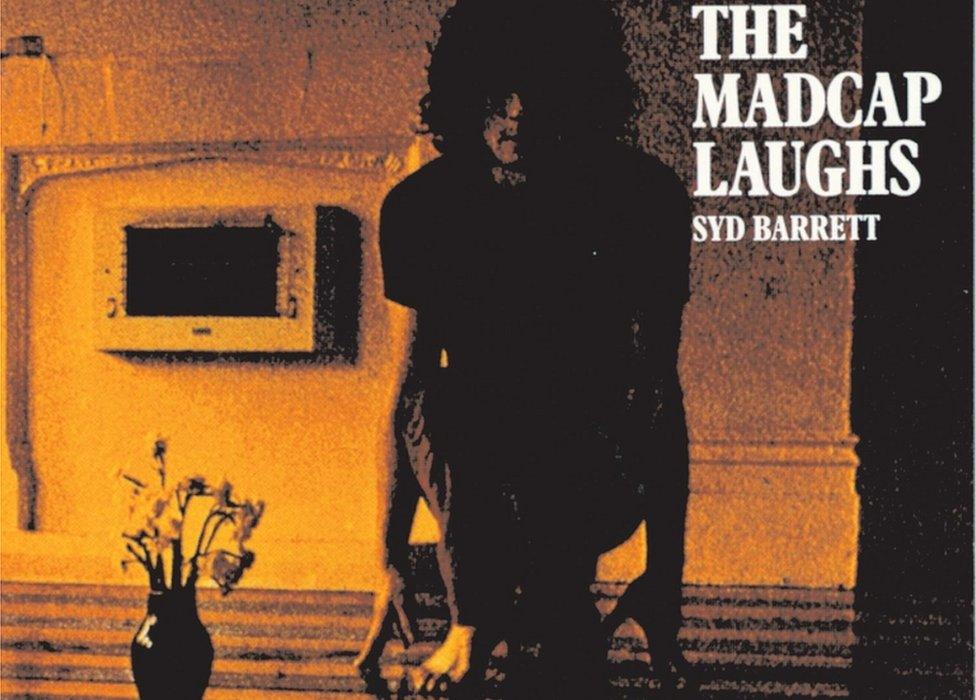
Barrett's solo album The Madcap Laughs was released in January 1970
The plans have been a year in the making and have been spearheaded by Cambridge Live's operations director Neil Jones, himself a big fan of Pink Floyd and its former star, Syd.
"When I first moved here, I couldn't believe there was no memorial or legacy for the city's biggest musical export," he said.
"Now it feels like the planets are aligned with the significance of the year, and it's all just come together."
Barrett's sister Rosemary, 69, will be participating in the celebrations, but says if her brother were alive, he would probably have stayed at home.
"He wouldn't have been interested in it - he wouldn't have turned up, and just let people get on with it," she said.
"I'm proud of the fact he could have given so many people pleasure through his music, but I know he wasn't proud of himself - he was just having fun."
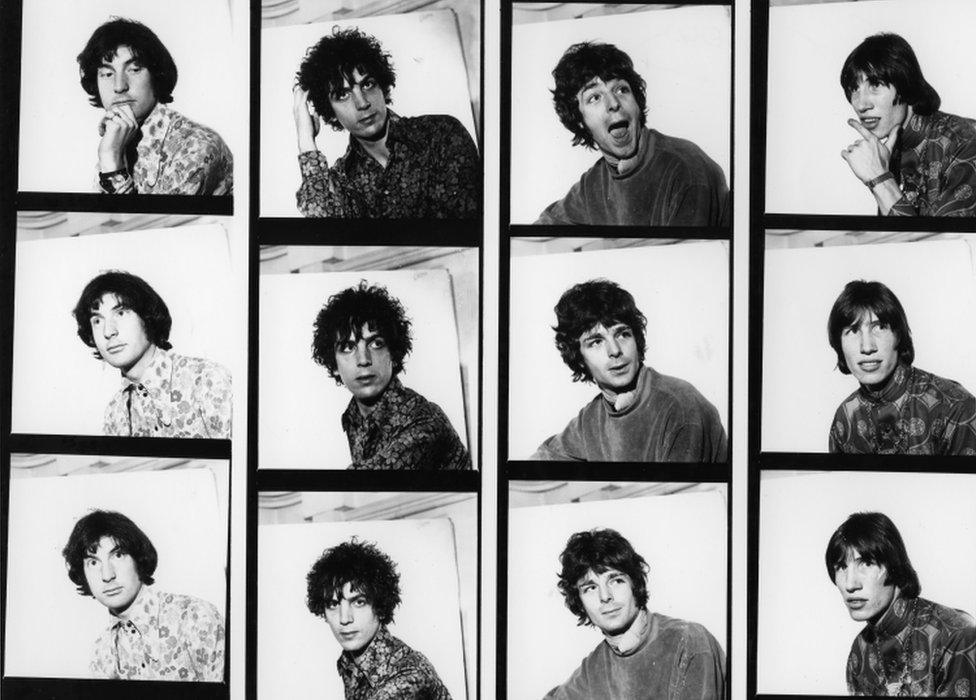
Pink Floyd's lineup in 1967: (L-R) Nick Mason, Syd Barrett , Richard Wright and Roger Waters
Barrett's musical journey began in Cambridge in the 1950s where he won a piano duet competition with his sister, aged seven.
At school he was friends with Roger Waters and David Gilmour - both of whom would later play in Pink Floyd - and in his teens he began adopting the nickname "Syd".
After honing his craft in a few local bands and making a name for himself in the city, he attended the Camberwell College of Art at a time when London was the epicentre of the UK underground music scene.
The band he joined there, which included Waters and Richard Wright as members, would later evolve into Pink Floyd - a name Barrett came up with.
By 1967, the band had signed a record deal and released two singles - Arnold Layne and See Emily Play - both of which were written by Barrett.
But their early success coincided with the onset of serious issues for Barrett, whose use of LSD and other psychedelic drugs was well-known.
After erratic performances in the US and troubled behaviour in rehearsals he left the band in 1968 and moved back to Cambridge to live with his mother, Win, in her three-bedroom house in Cherry Hinton.
Meanwhile, Pink Floyd continued without him, going on to pay tribute to their former bandmate in their 1975 composition Shine On You Crazy Diamond, and becoming one of the most successful and influential rock groups ever.
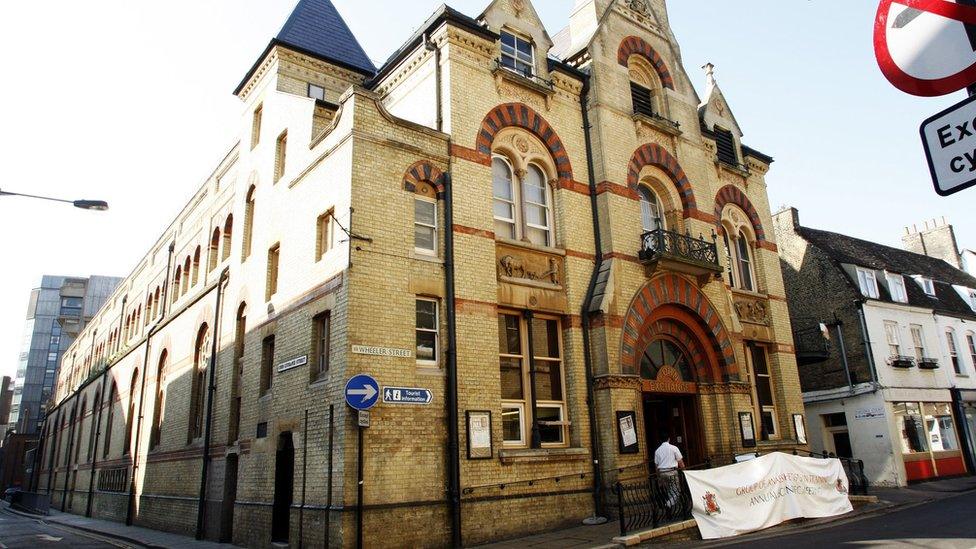
Cambridge's Corn Exchange was the venue for Syd Barrett's final live appearance in 1972
Barrett embarked on a solo career which saw him perform at the Cambridge Corn Exchange in 1972 - the last live show he played.
"It's no secret that it was far from the finest performance of his career," said Neil Jones of Cambridge Live.
"Notoriously, it was shambolic, and from what we gather it was abandoned midway through".
Jack Monck, a bass player who was on stage with Barrett that night, said: "It's become this iconic moment, but at the time it was the opposite. I didn't spend time regretting it, but I do regret we weren't more savvy and prepared."
Mr Jones says unveiling a memorial at the venue would not involve "brushing what happened under the carpet".
"The fact remains, it was his final ever live performance. It was a moment in history - and that's what we're remembering," he said.

'Remember when you were young, you shone like the sun'
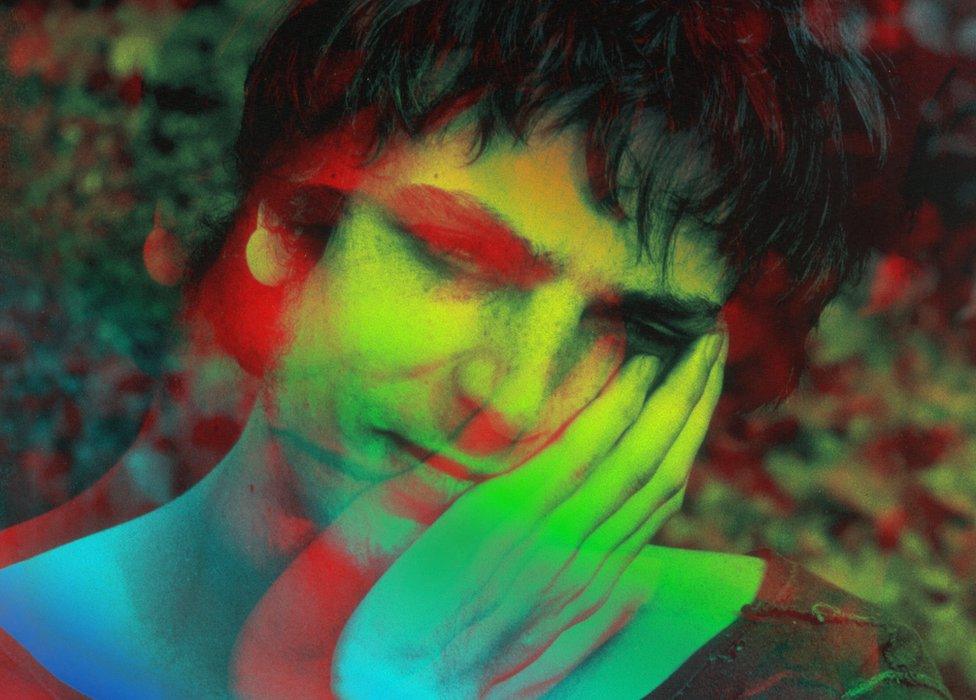
Syd Barrett's life and work is being remembered with a new piece of art in the Cambridge Corn Exchange
Appearing on the 1975 album "Wish You Were Here", the nine-part Pink Floyd composition "Shine On You Crazy Diamond" was a tribute to Barrett, written by David Gilmour, Roger Waters and Rick Wright
The lyrics refer to "a look in your eyes, like black holes in the sky", an apparent reference to the effects of Barrett's drug use
Barrett made an appearance at London's Abbey Road studios while the band were recording the track, and at first they did not recognise the shaven-headed, overweight man in the corner of the room
He eventually withdrew from the music industry and returned to Cambridge, where he lived until his death, from pancreatic cancer, in 2006
Roger Waters said Barrett's issues "happened very fast... right around the time of See Emily Play. You know, he got very weird very quickly"

The artwork itself, named CODA and to be unveiled later, was chosen from a shortlist by Barrett's sister and her nephew.
They picked it, she said, because it seemed "the right choice for what we were doing - very bright and sparkly, but quite basic".
"It is what it is without any extra bits," she added, describing her brother - who reverted to the name Roger in the 1970s, and would answer the door to strangers by saying "Syd doesn't live here anymore" - as a "very straightforward, ordinary guy".
"I would like him to be remembered for what he was - fun," she said. "He only got into that world because he enjoyed music - he didn't know why people were interested in him.
"I've never liked or understood Pink Floyd, but I love his paintings and he was at his happiest when he was doing that," she said.
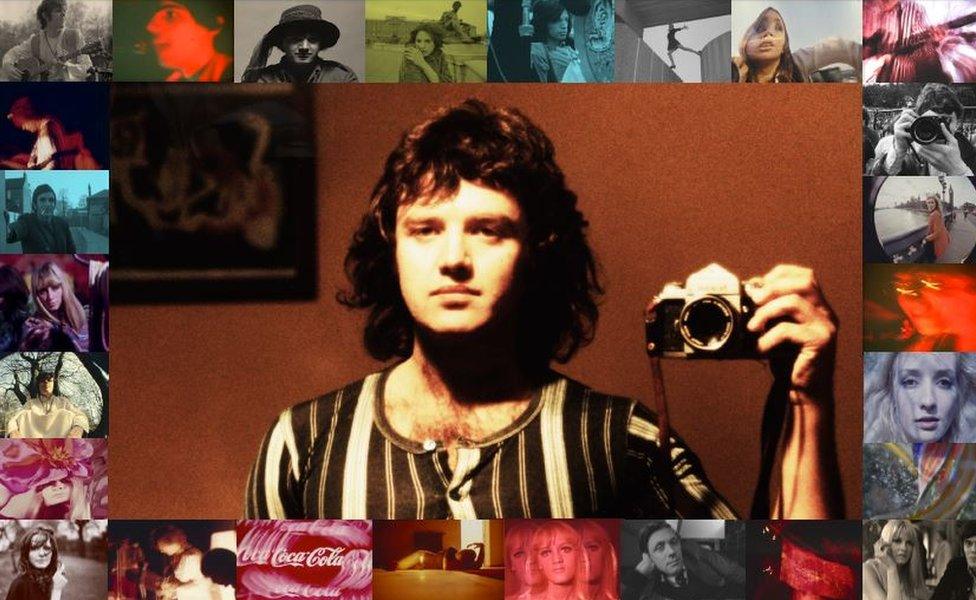
Anthony Stern was a school friend of Syd Barrett and captured scenes from 60s London counterculture on film and in photos
As part of the tributes, previously unseen footage of Barrett was screened as part of the Cambridge Film Festival.
The documentary film, "Get All That, Ant?", was put together by Anthony Stern, a former school friend of Barrett who worked as a professional photographer capturing images of London's 1960s counterculture scene.
He remembers Barrett as "very charming, very bouncy, very youthful", and said he did not think the musician ever really grew up.
"He was self expressive and didn't let go of the dreams, memories and affections of his childhood."
Bass player Monck recalls the influence Barrett's home city had on a man he described as a "creative spark".
"I think there's no doubt Cambridge had a profound effect on him. He was absolutely umbilically linked to the city," he said.
"It's surprising there hasn't been a memorial as yet, but that's all going to change now."
- Published27 October 2016
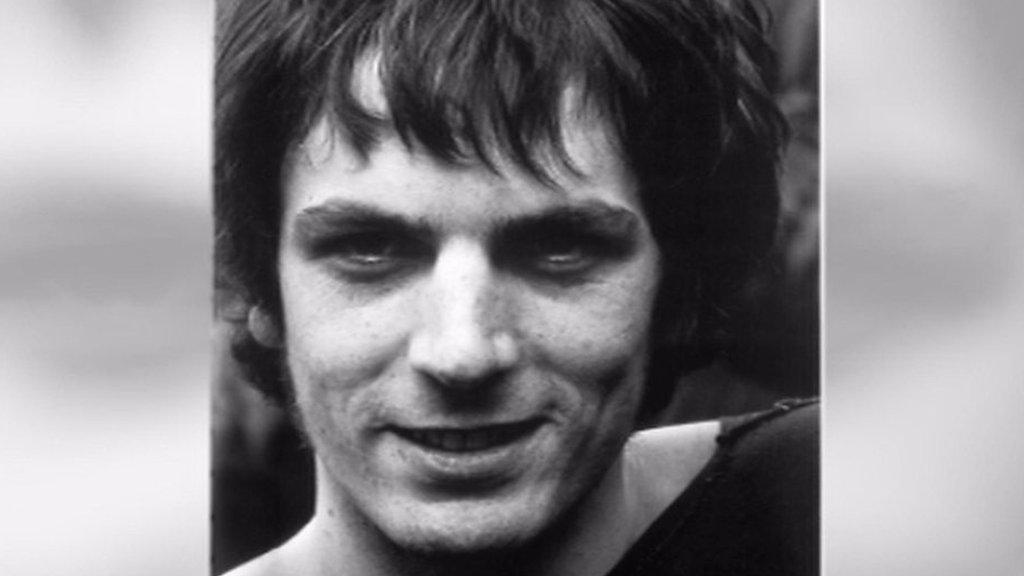
- Published8 October 2015
